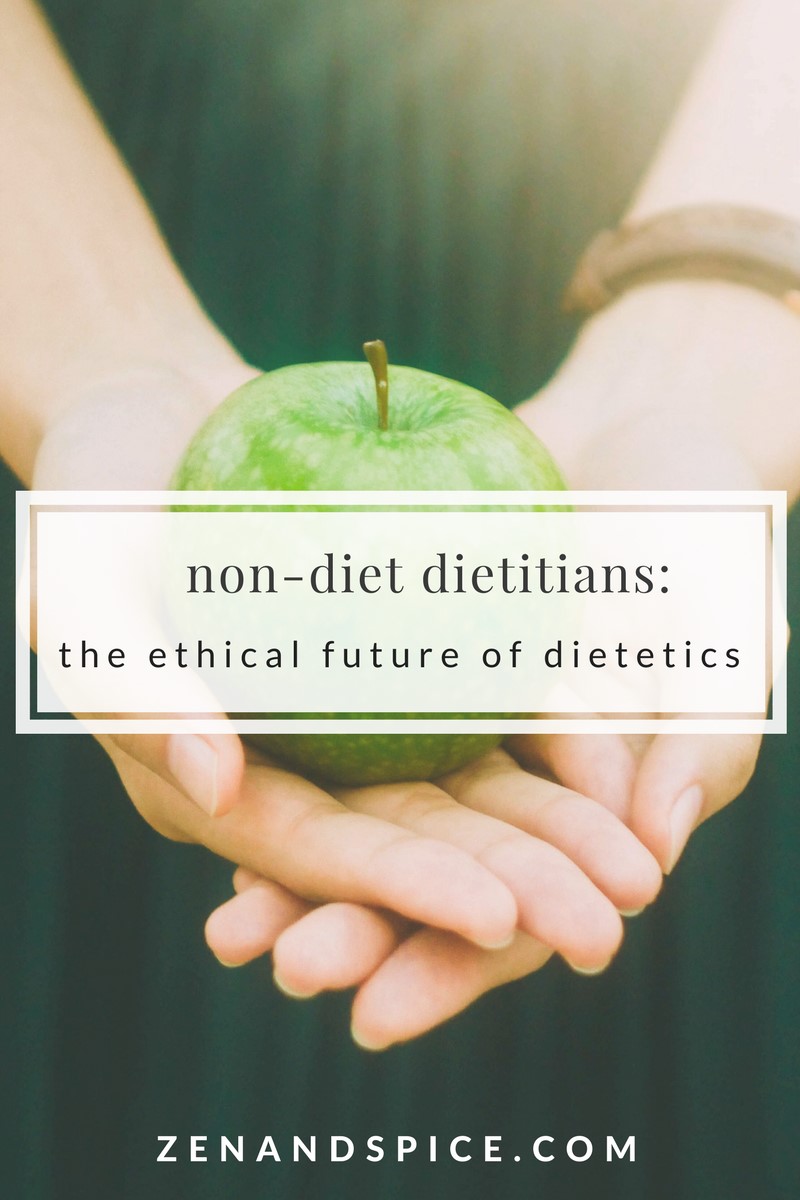
This summer, I’ll be renewing my RD credential for my first five year cycle. It’s crazy to think that I’ve been a practicing dietitian for five whole years. It’s also crazy to think how much my mindset on nutrition and health has changed since first stepping out into the world as a new dietitian.
As today, March 14th, is Registered Dietitian Nutritionist Day, I thought it would be appropriate to share some of my thoughts about my profession and where it’s headed!
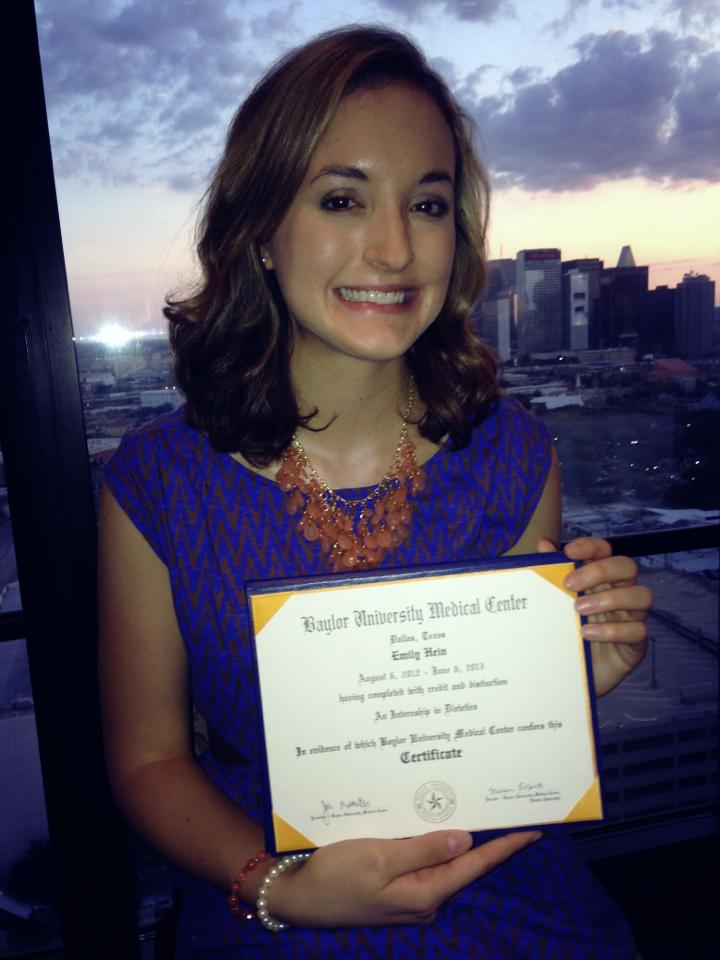
Coming out of my internship in 2013, I was totally ready to begin helping people change their lives. My undergraduate degree emphasized weight loss for health along with calorie restriction and exercise, and this continued on through my internship as we calculated energy needs for various types of patients and encouraged clean eating for weight loss. I started my blog back in 2013, as an intern, and I definitely had a few posts about clean eating. Heck, I even had a “clean eating ebook” that I gave away for free on my website. Yikes.
My first job out of my internship was at a heart hospital, where I spent three years counseling heart failure patients. I absolutely loved my job at first. I got to preach to patients about the importance of a healthy weight, calorie restriction, low sodium diets, and avoiding fast food. I felt confident; as this was exactly what we’d learned in school. I felt like I was good at something. But after a few years of doing this, I realized that few of my patients actually carried out what I taught.
In January of 2015, I enthusiastically begun my private practice on the side. I wanted freedom from the type of patients I saw at the hospital. My marketing strategy boasted clean eating. The first month, I had three clients (which was fantastic considering I was still working my full time job), and it continued to grow.
However, my marketing strategy seemed to attract only one type of client. Women, in their 20’s and 30’s, who wanted to lose 10-20 pounds. I saw these clients for their initial visit, which seemed to go extremely well, as I sat and educated these women on how to restrict their intake and eat clean. But none of them scheduled a follow up visit. I would email them friendly reminders, check-ins, etc to attempt to reingage, and I heard crickets.
Back then, I saw this as a failure. Was I a bad dietitian? After about a year of sporadic clients, with none of them scheduling follow ups, I thought: “Well, I must not be good at counseling. It’s just not my thing.” My side business took on sponsored posts, cooking demos, etc, and I stopped seeing clients altogether.
In the middle of all of this frustration with retaining my clients, I stumbled upon the book Intuitive Eating by Evelyn Tribole. It completely opened my eyes. The problem isn’t us, the problem is diets along with their rules and regulations that stop us from listening to our bodies.
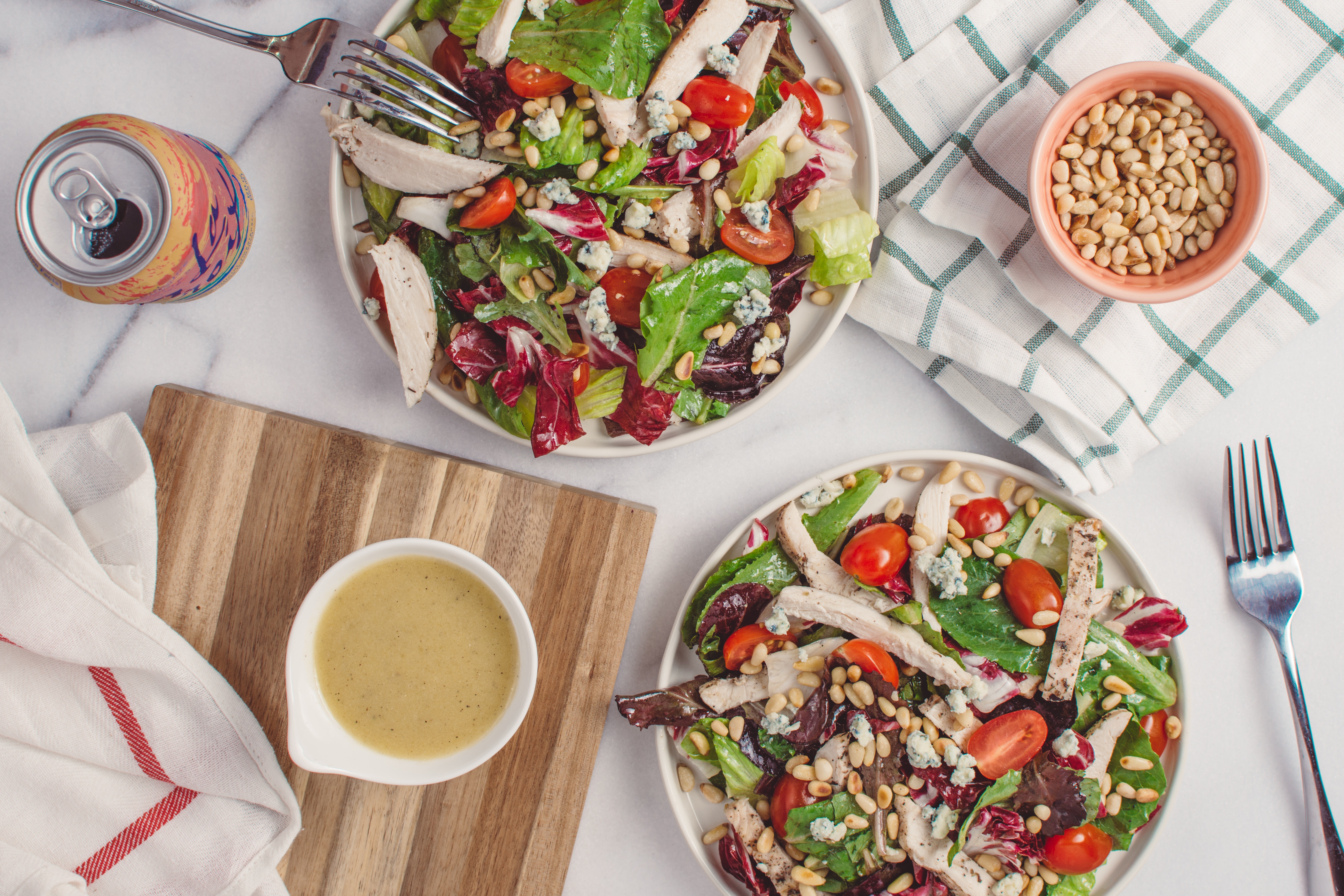
I began to see that what I was promoting to my clients (and to my patients at the hospital) was nothing other than a regular ol’ diet. I immediately felt a ton of guilt, and I still do. But how could I blame myself? This is what we, as dietitians, are taught in school. Not ONCE in my nutrition degree did intuitive eating or the health at every size concept come up. We spent years studying how to calculate the correct number of calories, macronutrients– grams of protein and carbs to lose weight, studying which foods had the largest nutritional bang for their buck. We had one class about counseling– but it was behavior change/weight loss counseling.
In my internship, I had to calculate calorie restriction plans for patients in the hospital. A 1500 calorie plan for patient X who “needed to lose weight”, according to their BMI, but was maybe in the hospital for a broken leg. Patients would be flagged for nutrition counseling just for their BMI being over 25. We had weeks of rotations where we worked in weight loss clinics, bariatric surgery clinics, etc, where we promoted calorie reduction and increased expenditure with exercise.
And you know what we continued to see over and over again? These patients would keep coming back– they’d lose a little weight and then gain it all back plus more. Was it us, the dietitians, who failed them? Or was it the diet that we were promoting that failed?
I truly believe that most dietitians become dietitians because they foremost want to help people improve their quality of life. But what if what we’ve been taught, and what we promote, has done nothing other than harm our patients and clients? And, what if, we became dietitians because it was a way to camouflage our own disordered eating habits? Because we have our own body image issues, fat phobia, fears of being sick or fears of death?
Our profession won’t be able to sustain itself if we don’t change the way we approach health. It’s simply unethical to recommend dieting for weight loss. Most dietitians pride themselves on science-based nutrition (meaning the claims we make have scientific backing). With 95% of diets failing to maintain weight loss long term, there is no evidence to support helping patients lose weight and keep it off. When we promise weight loss, clients are left feeling like failures when they lose the weight and gain it right back. Of the small 5% who do lose weight and keep it off, many of them deal with disordered eating or spend their days meticulously logging every calorie they eat for the rest of their lives. This is no way to live.
Dieting is defined as any restriction or rules that aim to help someone lose weight. Dieting has been shown to contribute to eating disorders, poor health outcomes, and weight cycling. There are still many dietitians who, unfortunately, still recommend dieting and restriction (even “lifestyle changes” can be diets in disguise!).
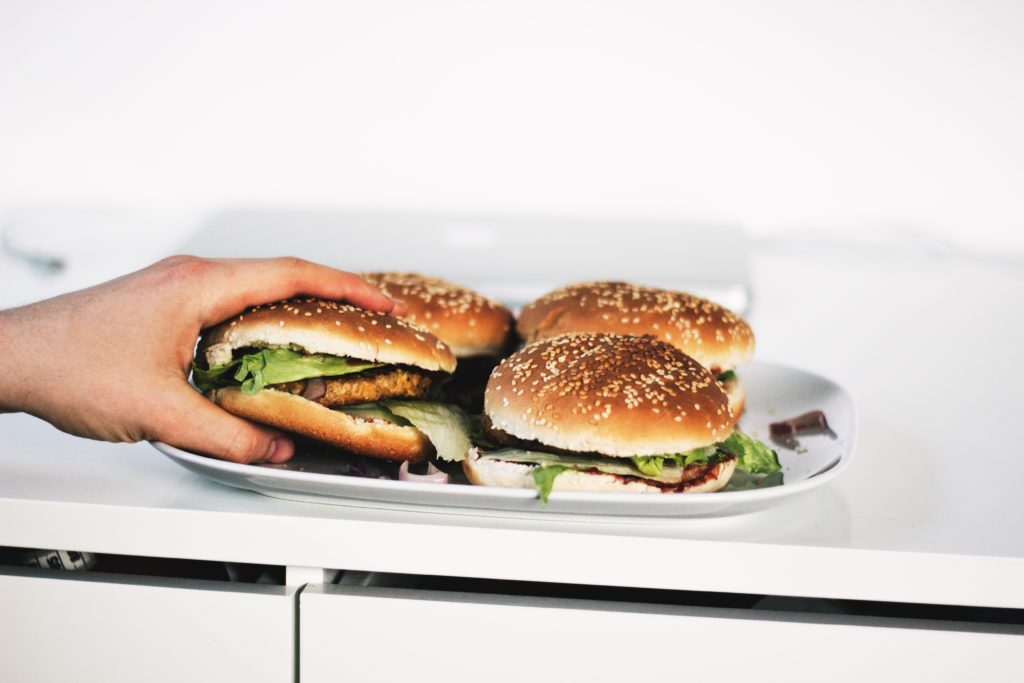
Dietitians need respect body diversity. Everyone has a set point weight range, that our bodies will fight to maintain. It’s completely different for everyone. Not all bodies are meant to be thin. Many people have naturally larger bodies and trying to force them into a smaller body is never going to work. Focusing on weight loss outcomes isn’t going to be sustainable. For any goals a client hopes to achieve through weight loss, can be achieved without having a weight focus. If a patient wants to improve their health, they can practice intuitive eating, vary up their diet, and find joyful movement. When we treat our bodies with kindness, they will take care of regulating our weight at the spot it’s supposed to be!
There’s a new wave of dietitians calling themselves non-diet dietitians. I’m one of them, and you’ll find me promoting a health at every size approach. Where health is so much more than a number on the scale — it’s a balance of mind and body. Stress relief, emotional support, socialization, energy, mood, are all equally important. At the core of anyone who feels they are struggling with their weight are usually many emotional issues that are screaming for attention. Whether it be stress, frustration, loneliness, or a host of other emotions. You can’t take care of your body if you don’t take care of your mind first!
As dietitians, we all want to help others live healthier and happier lives. I truly believe that every person who becomes a dietitian inherently wants to help others. But let’s take a good, hard look at the way we promote health to our clients and patients. Are we perpetuating the weight stigma by encouraging weight loss? Or are we teaching people of all sizes how to compassionately take care of themselves?
So are non-diet dietitians the ethical future of dietetics? It’s definitely something to think about!
If you’re a dietitian just discovering the world of health at every size and intuitive eating, I strongly recommend doing some reading and podcasting and learning more about this wonderful movement! Here’s a list of my favorite resources:
INTUITIVE EATING BOOKS
- Intuitive Eating
- The Intuitive Eating Workbook
- The Religion of Thinness
- Body Respect
- The Body Image Workbook
- Body Kindness
- Secrets of Feeding a Healthy Family
- Eat What You Love, Love What You Eat

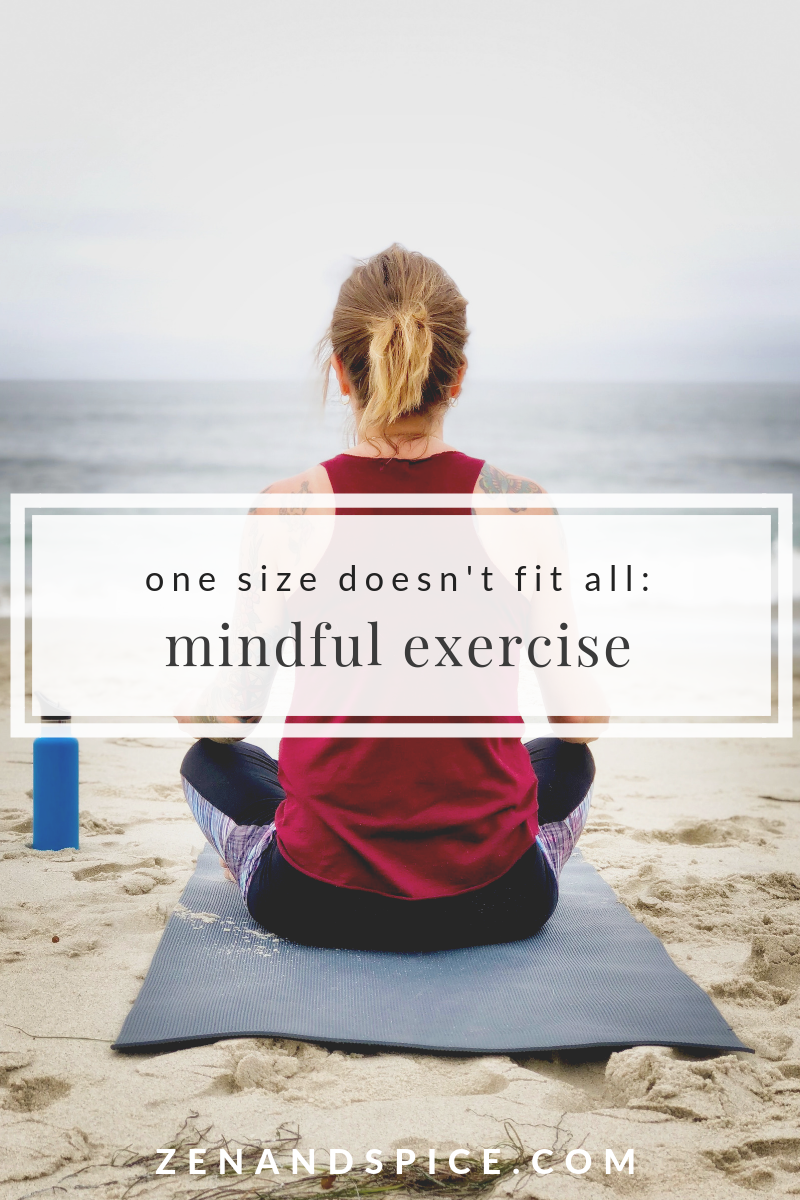
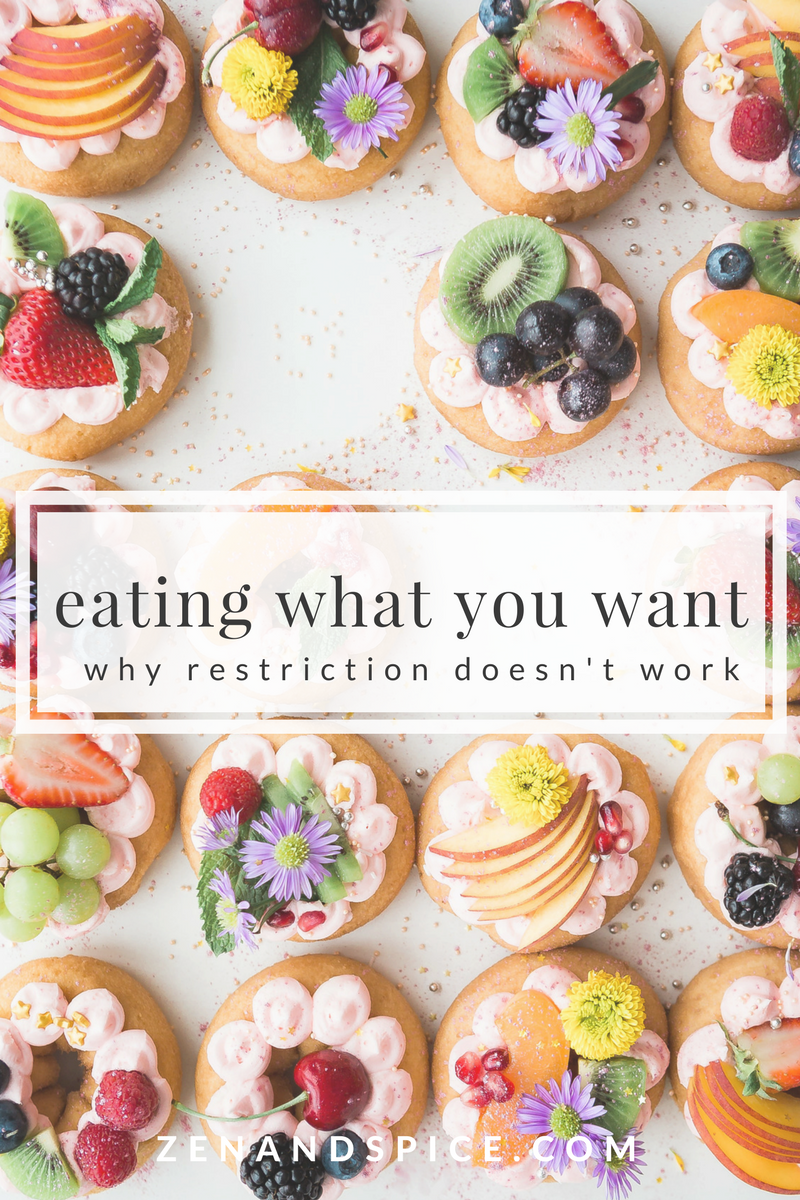


our pathways were really similar and we finished our internships the same year! I started out in clinical & noticed the same thing. that glossed over look and aimless nodding during nutrition education. I feel so much more hope for my clients and for our profession now than I ever did before. thanks for sharing this well written piece! and happy RDN day!!!
i read this article yesterday US News about 2 different types of dietitian basically and i have been thinking a lot about it. my education and experience is very much what you went through and its been a long journey even for me to understand what it really means. i wish our formal education exposed us to health at every size concept so that we didnt have to go through this restrictive approach to eating. being in a clinical setting,
i am loving this movement with so many wonderful RDs and I hope this wave only grows bigger and people can free themselves from constant dieting..
Great post, Emily! I sure hope that a weight-neutral approach is the future of dietetics. I never heard about it in any of my education either, and I sure wish I had!
Great article! I too am so grateful for the book Intutive Eating which I read during my internship. It totally changed my entire perspective. I’m so excited that our profession is heading into a non-diet, HAES model. I hope that we, as nondiet dietitians, will be able to have a great impact on our communities and to fight the diet industry.
When I first decided I wanted to be a dietitian, it was partly because I LOVED nutrition articles in fitness magazines promising a perfect body and “easy” low calorie meal plans and food rules… Now I can’t even stand to read the covers of those magazines, and cringe when anyone asks for a meal plan as soon as they hear I’m a dietitian. There’s so much more to health, people! Thanks for this article, love hearing how other RDs have shifted perspective too.
[…] Reads: Picture Taking Tips for Moms via A Healthy Slice of Life Are Non-Diet Dietitians the Future of Ethical Dietetics? via Zen & Spice How to Encourage Unstructured Play via A Healthy Slice of Life Thoughts on Self […]
[…] Reads: Picture Taking Tips for Moms via A Healthy Slice of Life Are Non-Diet Dietitians the Future of Ethical Dietetics? via Zen & Spice How to Encourage Unstructured Play via A Healthy Slice of Life Thoughts on Self […]